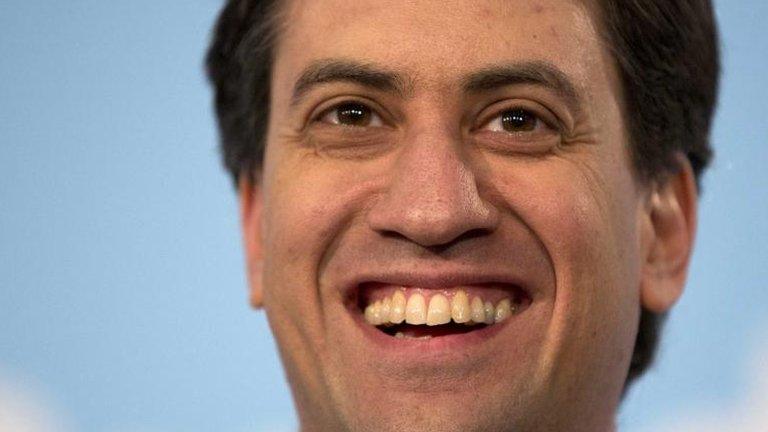Trade unions criticise 'partisan' funding reforms
- Published
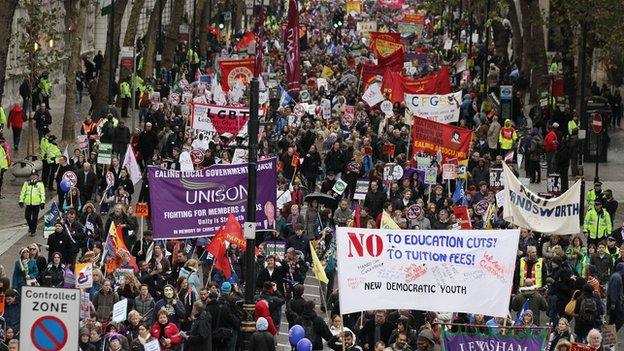
Unions have accused the Conservatives of a "shamelessly partisan attack" on Labour Party funding with reforms proposed in the Queen's Speech.
Under the changes, union members will have to "opt in" if they want to pay a political levy as part of their fees, rather than having to opt out.
Labour's Harriet Harman said changes to party funding should not be "rigged in favour of the Tory Party".
The Trade Unions Bill will also feature a minimum turnout for a strike ballot.
Trade unions use their political funds to campaign on wider political issues.
Currently, once a decision has been taken by ballot to maintain a political fund, individual members have to take a deliberate decision to "opt out" if they do not want to contribute.

Analysis by Iain Watson, political correspondent
By proposing that trade unionists must now "opt in" the object is clear - fewer members are likely to make a conscious effort to do so, so funds would decrease.
This is precisely what happened between 1927 and 1946 when the "opt in" system was introduced after the general strike, only to be repealed by the post-war Labour government.
But what effect will this measure have on Labour Party funds today?
Changes introduced by Ed Miliband mean that those union members who want to be associated with the Labour Party - or, in the jargon, who wish to be "affiliated supporters" - must now consciously opt in.
It's estimated that affiliation fees from big unions such as UNITE and the GMB will fall substantially as a result.
So if the government now applies the same principle to political funds as a whole, this would hit Labour less hard than it would have done before the Miliband reforms.
But smaller political funds would also make less cash available to union leaders to make , at their discretion, the separate party political donations on which Labour increasingly depends.

The Department for Business, Innovation and Skills said no further details were available as the bill was still being worked on.
A Unite spokesman said: "Political funds are already subject to approval being given in regular ballots by unions. Tory hedge fund and multimillionaire donors will face no similar restrictions, leaving boards free to write hefty cheques backing the Tory party.
"Absent from the Tory manifesto, there is zero popular mandate for this move which is just one more attack on working people. It is clear there is no place for trade unions in Cameron's 'one nation'."
Paul Kenny, of the GMB, added: "This will not deter or silence the voices of millions of working people who have already given their approval for political funds through democratic ballots governed by statute."
Minimum turnout
Responding for Labour to the Queen's speech, Ms Harman said: "If there are to be any changes to party funding, it must be on a fair, cross-party basis, not just rigged in favour of the Tory party."
The speech promised reforms of trade unions, to "protect essential public services against strikes".
These also include pre-announced measures including a 50% voting threshold for union strike ballot turnouts, and a requirement that 40% of those entitled to vote must back action in essential public services - health, education, fire and transport.
Time limits will also be introduced on a mandate following a ballot for industrial action.
Ministers say this will ensure strikes are the result of "clear, positive and recent decisions" by union members as well as ensuring that disruption to essential public services has a democratic mandate.
- Published27 May 2015
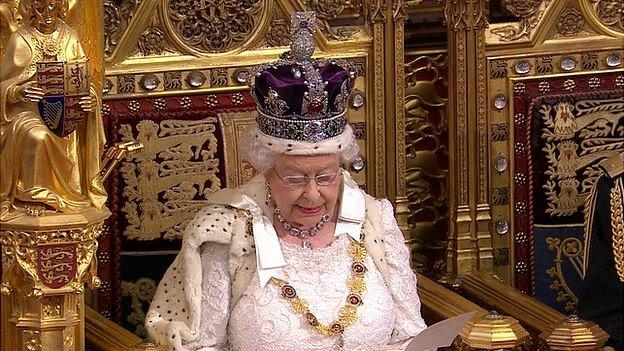
- Published27 May 2015
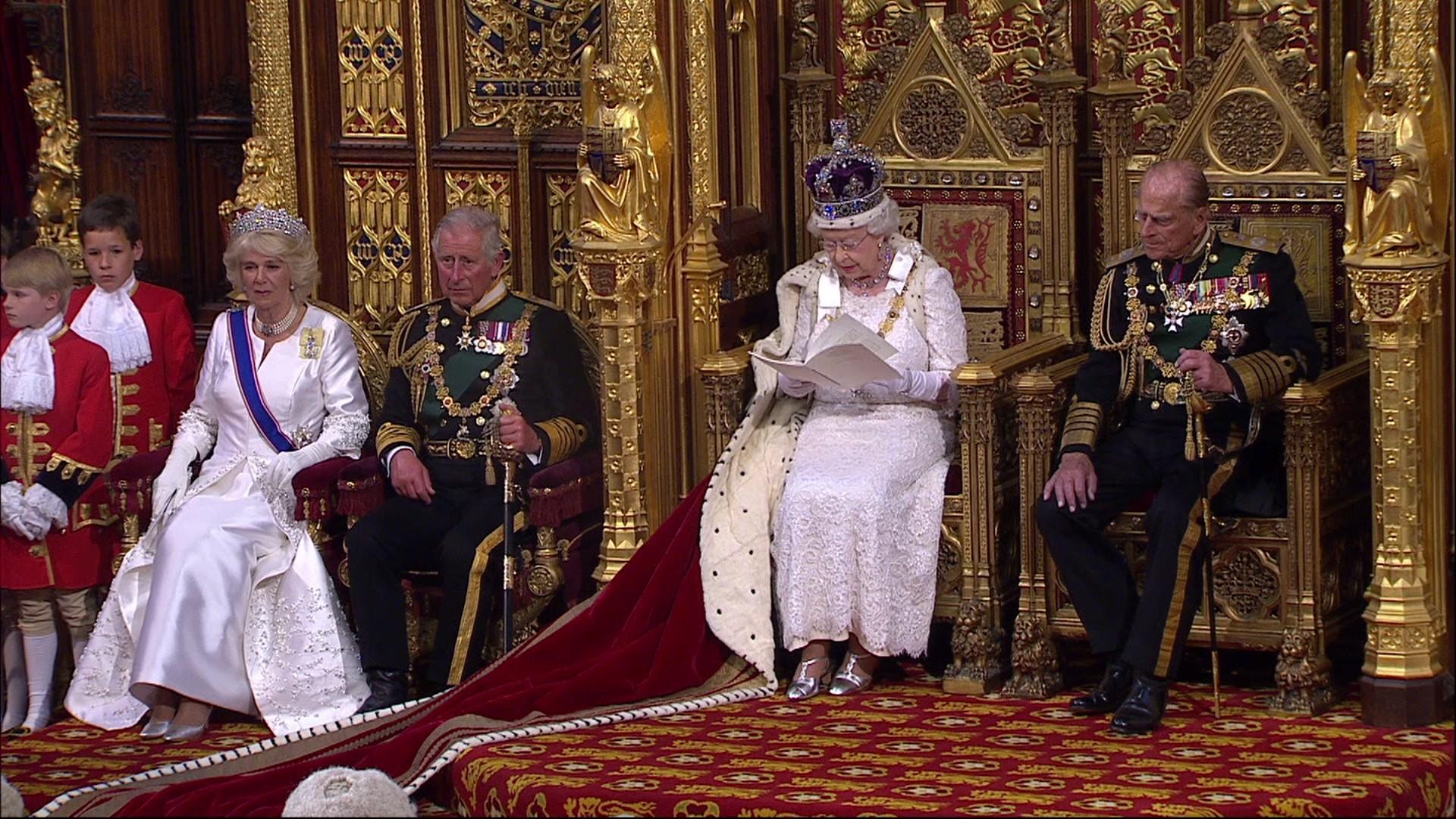
- Published27 May 2015
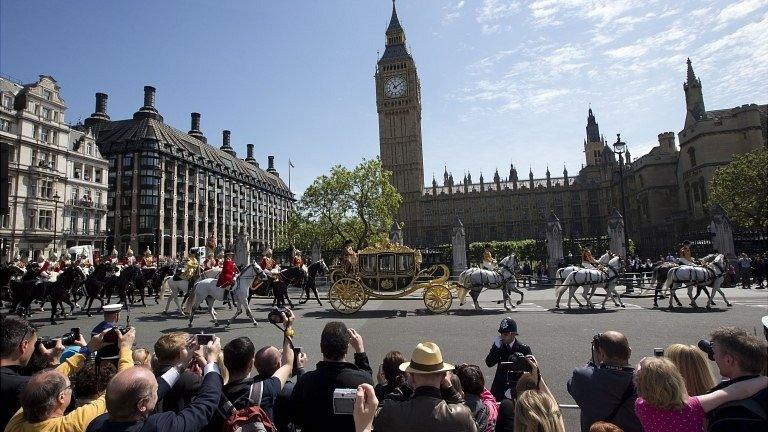
- Published1 March 2014
